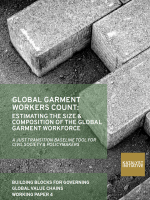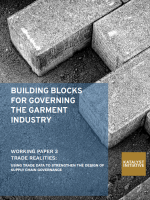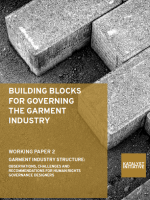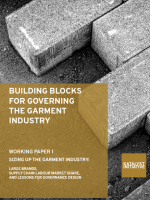PUBLICATIONS & WEBINARS
BUILDING BLOCKS FOR GOVERNING GLOBAL VALUE CHAINS
The Building Blocks series aims to assist policymakers, labour advocates, civil society actors and anyone else interested in designing the new forms of governance and regulation needed to improve protection of human rights and the environment in transnational supply chains. Focusing primarily on garments as a test case, we hope to help ‘catalyse’ new, multi-disciplinary strategies to make 21st century supply chains fairer and more sustainable.
ESTIMATING THE SIZE & COMPOSITION OF THE GLOBAL GARMENT WORKFORCE: A JUST TRANSITION BASELINE TOOL FOR CIVIL SOCIETY & POLICYMAKERS
This paper provides a detailed, evidence-based estimate of the garment workforce covering the 30 countries responsible for 95% of garment exports, plus several countries widely discussed as future hubs. It explores data disaggregated by value chain stage, gender, and other characteristics; considers the policy implications of the current industry workforce structure; and suggests ways that better employment data can support global value chain governance efforts. Read More..
Using Trade Data to Strengthen the Design of Supply Chain Governance. Working Paper 3
Katalyst uses trade data to explore how the effectiveness of new forms of supply chain governance – like mandatory due diligence laws, transnational collective bargaining agreements or enforceable brand agreements – may be influenced by trade flows, now and in the future. Read More..
Observations, Challenges and Recommendations for Human Rights Governance Designers. Working Paper 2
We outline five challenges related to industry structure that we believe governance designers will need to consider as they develop new laws, regulations, collective bargaining systems and other forms of governance for the future of the garment industry. Read More…
Large Brands, Supply Chain Labour Market Share, and Lessons for Governance Design. Working Paper 1
How many garment brands would need to change their behaviour in order to reach a ‘critical mass’ leading to widespread improvement in respect for human rights and the environment? And how should governance and regulatory efforts be designed to help achieve that critical mass? Read More…
RESEARCH PAPERS
Luc Fransen, Martin Curley & Anne Lally, in Environmental Science: Advances. Issue 9, 2024
Governments of various economies in the world are currently developing supply chain legislation for businesses, aiming to protect the environment and human rights in supply chains. Illustrated by the urgent case of garment production exported to Europe, we conclude that current import–export relations could limit the scope and impact of such supply chain legislation. Read More
RESEARCH CONTRIBUTIONS
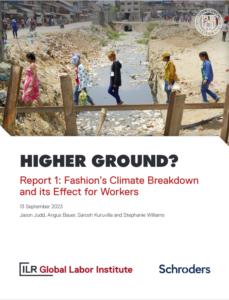
Higher Ground? Fashion’s Climate Breakdown
Heat, humidity and flooding – driven by climate change – pose enormous risks in the coming years to garment workers, companies and whole national economies. This paper, led by our colleagues at Cornell ILR’s Global Labor Institute, quantifies the risks and explores possible responses. Katalyst was pleased to contribute analysis and observations to the effort. Read more…
ARTICLES & OPINION
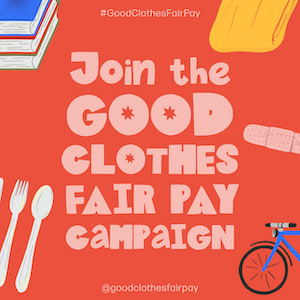
Where would EU living wage legislation have impact for workers?
Our ‘Viewpoint‘ contribution to the Good Clothes Fair Pay legislative proposal campaign has been published. Building on our Trade Realities research, we explore which countries will benefit the most from the proposal and how, combined with good data, it can help create the long-sought-after ‘level playing field’ for living wages.

Human Rights Due Diligence: Making it Mandatory – and Effective
KI’s Martin Curley on the EUIdeas Blog at the European University Institute argues that creating a central role for labour and civil society in deciding what ‘good’ due diligence looks like is critical as efforts to make human rights due diligence mandatory gather speed.
WEBINARS

Governing Today’s Garment Industry: Key Challenges and Opportunities for Policy-Makers
In this 2023 talk, part of the Rebalance Capitalism & Democracy Project at the University of Pisa, we explore how Katalyst’s research into some critical but poorly-documented aspects of the garment industry’s structure can help policymakers design better legislation, treaties, and forms of collective bargaining designed for 21st century supply chains.

